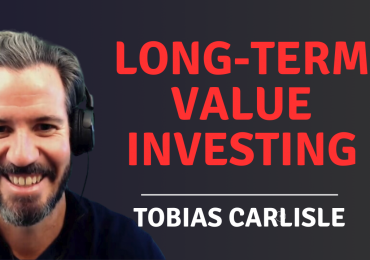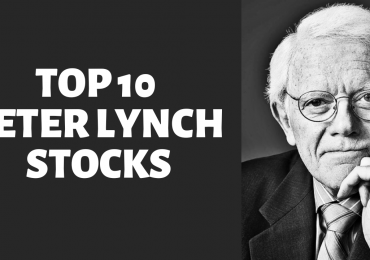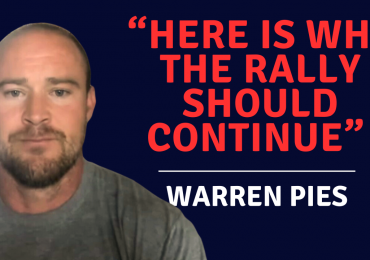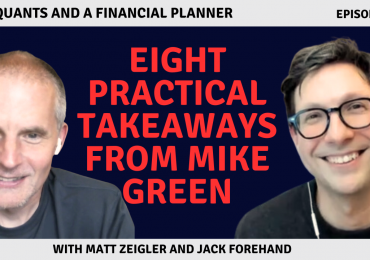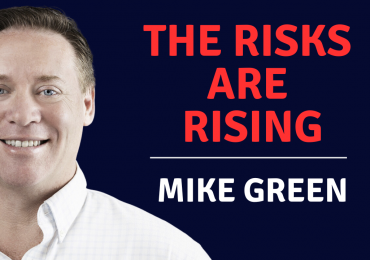By Justin Carbonneau (@jjcarbonneau) —
At the Berkshire Hathaway annual meeting over the weekend, an attendee asked Warren Buffett for his advice on achieving success in life and investing. His response was a powerful one:
“You should write your obituary and then try to figure out how to live up to it.”
Warren Buffett, 2023 Berkshire Hathaway Annual Shareholder Meeting
This statement inspired the idea for this article. If we, as investors, were asked to write our own investing obituary, what would it say? Would it be a chronicle of mistakes and missed opportunities, or stories of victories and successes, and tales of us ultimately achieving our goals? By envisioning our investing obituary, we can clarify our objectives and refine our investment approach in the present. An obituary offers a record or remembrance of someone’s life, so in the spirit of Buffett’s advice, let’s consider what might go into a good investor’s obituary.
The Early Years: Saving and Investing
The first section of your investing obituary would most likely address whether you had the opportunity to save. Did you make a conscious effort to set aside a portion of your income for investing? Did you prioritize saving and understand its importance in building a solid foundation for your investment journey? This would be an important first part of our obit.
The Formative Years: Learning How to Invest
The next part is, how did you learn to invest? I would equate this to the early days of someone’s investing life. Did you get your start buying individual stocks, investing through your 401K, or some other type of event like an inheritance? At some point, the investor transitions from saving to investing. It’s at this point that most start to have an understanding of the power of compounding and growing one’s portfolio over time.
However, investing isn’t a skill we’re born with; it’s a learned ability that requires time, effort, and a commitment to continuous learning. At some point, those investors who are managing their portfolio and looking to improve their results start seeking insights, methods, and techniques that can help them make better, more informed decisions and perhaps even more importantly, avoid some of the biggest mistakes one can make that can hurt long-term performance.
Just like in life, these initial experiences can be formative in that the starting point in the market plays an important role. Consider the investor who started buying stocks in early 2009, effectively the bottom of the market in the Great Financial Crisis where stocks enjoyed one of the longest bull markets in history. That’s a big contrast to the young investor who started buying stocks in late 2019, and who has had to deal with two bear markets (COVID crash and 2022).
Your Portfolio: A Reflection of You
The composition of your portfolio is another key element of your investing obituary and is likely to be a reflection of you and what you believe in. Were you a cost-conscious investor and did you pay attention to fees? Were you someone who believed in active management or did you own individual stocks? Maybe you took a lot of risk or maybe you were super sensitive to volatility and drawdowns. Or maybe you chose to work with a financial advisor and hire out the investing responsibility. All of these decisions would play a part in the portfolio and how it develops over time for your specific investing and financial story.
Where You Want to Go, What You Want to Do
As your portfolio ages and as you mature as an investor, your investing obituary would also likely spell out what you are trying to ultimately achieve with your investments. Did you invest with a clear purpose in mind, such as retirement, buying a home, or funding your children’s education? Did your investment choices align with these goals, and did you adjust your strategy as your goals evolved over time? Hopefully, your obituary would talk about what those goals were and highlight your achievement of reaching those goals nd the highlights you had during your life that could be tied back to the investments you made and the path you chose to follow.
Did You Stay in the Game?
Your investing mindset is a crucial part of your financial legacy. Were you patient and disciplined, understanding that investing is a long-term endeavor? Did you avoid panic selling during market downturns and resist the temptation to chase after the latest investment fads?
After the obituary comment, Buffett went on to say, “You just want to make sure you don’t make any mistakes that will take you out of the game or come close to taking you out of your game.” Mistakes can come in many forms – too much risk, bad market timing, and overconfidence just to name a few – so as investors, we want to make sure we invest with the right mindset so we can stay in the game and be remembered as a level-headed long-term investor whose portfolio and investments help meet their goals.
What You’ll be Remembered For
No investor is perfect. From saving rates to investing mistakes to bad decisions and the emotions of fear and greed – no investor obituary would be true if there weren’t mistakes along the way. But the idea of thinking about your investing obituary can be a powerful exercise as it can force us to reflect on our current investing approach and act as a guide to sound future decisions and as a way for us to think about how we’d like to be remembered.
As Buffett suggests, envision the legacy you want to leave, and then strive to live up to it.


